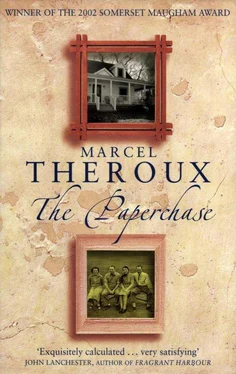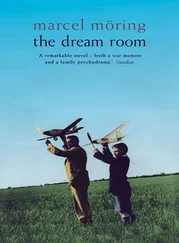I made my way home by back streets, and was helped by the weather, which had turned to rain and rendered my sodden attire less conspicuous.
Abel Mundy’s body was never found. Suspicion fell upon Mrs Mundy, but she claimed, with justification, that her husband’s disappearance was as much a mystery to her as to anyone else. By a circuitous coincidence, several months later my brother was employed by Abel Mundy’s insurers to ascertain whether or not the man was indeed dead. This was a kind of loss-adjusting work well suited to deductive reasoning which he frequently undertook, but which was of more significance to his finances than to his hagiographers.
I had continued at Fernshaw’s for a short while after, but found that I had lost the taste for combat. I grew lethargic and, after a while, ran to fat. An acquaintance from school had set me down for membership of the Diogenes Club, and I began to pass my evenings there, in the panelled silence of its library. It was here that I was summoned one evening to receive two visitors in the only room of the club where talking was permitted.
My brother was there, along with his lumpen sidekick. He had come, it turned out, to seek my advice about the Mundy case.
‘I knew the fellow,’ I said, before he had gone beyond the details of the disappearance. ‘Boxed with him for a year or more.’
‘You … boxed?’ cried Watson, unable to conceal his surprise. I had, as I mentioned, run somewhat to fat.
‘Took a Blue, old boy. Don’t do it nowadays of course.’
‘A Blue! As did your brother.’ He made a note on a piece of paper which he had taken from his pocket.
‘My brother boxed, Mr Watson, but he did not take a Blue.’
My brother looked slightly uncomfortable. ‘What sort of a fellow was he?’
‘You should be able to tell me that yourself.’
‘Well, yes, of course. I merely meant to ask you for your opinion. Did he strike you as the type of chap who’d pull a jape like this? Disappearing into thin air.’
‘The police found blood and traces of a struggle, did they not?’ I said.
‘Blood, yes. But whose blood? The blood of what? He wouldn’t be foolish enough to disappear without an alibi. A clever criminal could have disposed of him without a trace of blood.’
‘If I understand you rightly, brother, the absence of blood you take as evidence of a murder. The presence of blood you take as proof that no murder happened. If your reasoning is correct, we must be witnesses to a massacre. Why, look at my hands!’ And I held up my fingers to him in the lamplight.
*
FINIS
I MUST HAVE FALLEN ASLEEP in the armchair. It had carried on raining during the night and I was vaguely aware of drops drumming on the window. I found the noise consoling. I woke up when it seemed to begin again, this time louder. Gradually, it resolved into an insistent banging at the kitchen door.
The pages of Patrick’s stories were scattered around the armchair. I gathered them up quickly and put them on a high shelf. I assumed my visitor was Nathan, coming round to pick up the money I owed him.
Mrs Delamitri stood outside the kitchen door in a dazzling white jacket. It was already sunny and the light bounced off her clothes so that I had to squint to look at her. Seen in silhouette she looked like a quarterback, because of her huge shoulderpads and the way she pressed her handbag along the inside of her left arm like a rugby ball.
‘I’ve changed my mind,’ she said.
I remembered the unsuccessful pass I had made at her on the beach. What had seemed spontaneous and feasible then, now felt like a moment of toe-curling embarrassment.
‘About the painting,’ she said. She pronounced it without the t: paining. ‘There’s no need to look so worried. Oh my God, Damien, did you think I wanted to go to bed with you? You did, didn’t you? Oh my. Go get dressed and I’ll make us both some coffee.’
She had a way with the recalcitrant kitchen that made me realise just how well she had known Patrick.
‘I was thinking it over,’ she said a little later, when I had changed and the coffee was made. ‘And do you know I thought that once you’ve left I probably won’t ever come here again. I wanted to have something — a memento. I’m sorry I came by so early, but I was afraid you might have already left.’
I told her not to worry about it. I couldn’t leave until I had got hold of a new passport. I mentioned that I had found some stories that Patrick had been working on.
‘Stories? By Patrick?’ She couldn’t have looked more excited if I’d told her I’d found fragments of the true cross in the attic. There was a fervour in her voice — almost a tone of veneration. ‘Where were they?’
‘In one of the boxes.’
‘I’d love to see them,’ she said.
‘They’re in a very rough state.’ I was reluctant to let her see the manuscript. I had found the implications of the final story too unsettling. There was something obsessive about the violence in it, as though Patrick had been trying to write one story but in spite of himself had written another.
‘Damien, this is so exciting.’ She put her cup down so quickly that a little of the coffee slopped on to the table. She didn’t notice. ‘Where are they?’
‘I took them into town to have them copied.’ I looked at my watch. It was half past nine. ‘Just got back about twenty minutes ago.’
‘You left an original manuscript at a copy shop in Westwich? Oh, Damien. Was that smart?’
I tried to reassure her. ‘They’ll be fine,’ I said. ‘I gave them to Mr Diaz to copy. There’s no way he’ll lose them.’
‘For a moment, I thought you’d just dumped them at some Korean grocery shop,’ she said. ‘What a relief.’
I told her I’d had trouble reading Patrick’s handwriting so I didn’t know what the stories were about. Her surprise was genuine, I decided. I don’t think she had any idea that he had been working on the Mycroft stories.
She took the painting and began talking about the friend she was staying with up at the War Bonnet Cliffs. She said she was a sculptor, and began describing how she used driftwood that she collected from the beach.
I found it hard to concentrate on what she was saying. The coffee had revived me, but my thoughts were all about my uncle’s strange story.
The tone was strangely confused — after a dark opening, it had reverted to jokes and soft pornography. But an unsettling mood had come over it with the arrival of Abel Mundy. It was a different atmosphere from the previous stories — the darkest they’d got was a kind of melancholy, the wistfulness of a self-described failure looking back on his life with regretful humour. This was something else: vengeful, active. It was almost as though there was too much anger for one character to contain. Mundy’s violence seemed to infect Mycroft, and by implication, Patrick. I thought about what Mrs Delamitri had said about Patrick’s baseless guilt. ‘There was always this feeling that he’d done something awful.’
I began to wish Mrs Delamitri would go away so that I could reread the story and consider what I had found upsetting about it.
‘It’s a quality the light has here, apparently,’ she was saying as she stood gazing out of the window over the garden. ‘She came out here from Wisconsin and just fell in love with it.’
The detail that stood out for me was the deaf family. Although they had been transposed in time and place and re-upholstered as a different ethnic group, I felt they were still recognisably my neighbours, the Fernshaws. It wasn’t just the deafness. The sexes and relative ages of the children were the same in both families as well. It meant Abel Mundy might be a portrait of their father.
Читать дальше












